15 Recommendation Letter Types: Choose the Right One for You
Published: 5 Feb 2025
Hey there! So, you need a recommendation letter, but you’re standing there thinking, “Which type do I need?” Maybe you’re applying for a job, going for a college scholarship, or even trying to get a promotion. But which letter is best for your situation?
Trust me, you’re not alone. Figuring out what type of recommendation letter to ask for can feel like a bit of a headache. Do I need an academic one? A professional one? Or something else? It’s confusing, right?
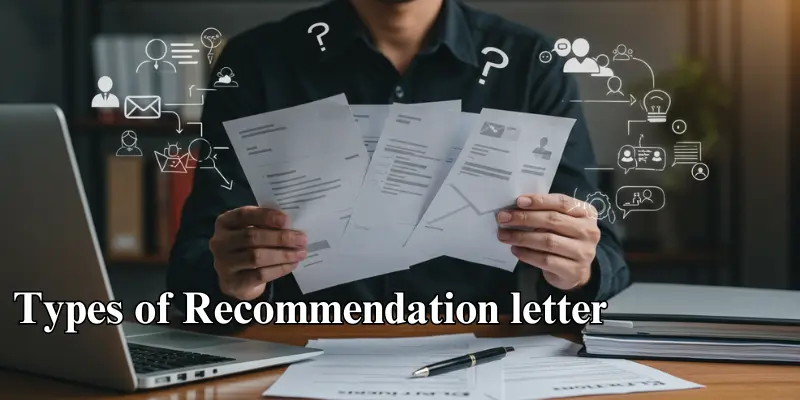
But here’s the good news: you don’t have to worry about it! I’m here to walk you through 15 different types of recommendation letters and I’ll give you the solutions and tips for asking for each one. After this guide, you’ll know exactly which one fits your needs, and the process will feel like a breeze.
Ready to get started? Let’s dive in!
Quick Recap of 15 Types of Recommendation Letters
Alright, before we go deep into each type, here’s a quick overview so you can see what we’re working with:
- Academic Recommendation Letter
- Professional Recommendation Letter
- Character Recommendation Letter
- Graduate School Recommendation Letter
- Immigration or Legal Reference Letter
- Volunteer Recommendation Letter
- Scholarship Recommendation Letter
- Job Recommendation Letter
- Internship Recommendation Letter
- Personal Recommendation Letter
- Reference Letter for a Tenant
- Business Recommendation Letter
- Promotional Recommendation Letter
- Religious Recommendation Letter
- Professional License Recommendation Letter
That was easy, right? Now, let’s break down each one in a simple, fun way so you get a feel for what they’re all about.
1. Academic Recommendation Letter
Okay, let’s kick things off with the academic recommendation letter. This one’s pretty common, especially if you’re applying for college or a scholarship. You know, the kind that your teacher or professor writes about you. It’s all about your academic performance—how well you’re doing in school, your dedication to learning, and why you’re a great fit for that next big academic step.
So, why is it important? Simple: it helps show schools that you’re not just another name on an application; you’re someone who’s passionate about your studies and will thrive in their program.
Who can write it?
- A teacher
- A professor
- A school counselor
When should you ask for it?
- For college applications
- For scholarships
- When applying for graduate school
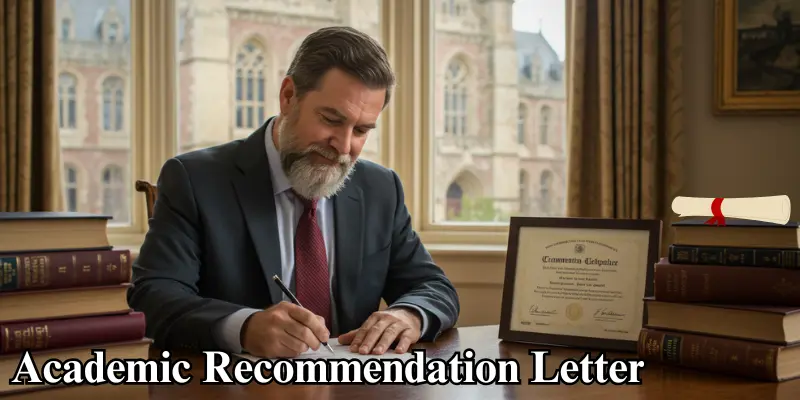
2. Professional Recommendation Letter
Next up, the professional recommendation letter—this one’s for all the adults out there (or those of you looking to level up in your career). You’ll typically get this from your boss, co-worker, or anyone who’s worked with you in a professional setting. The goal? To show how you perform in the workplace, how you approach tasks, and why you’re a great fit for a new role or a promotion.
It’s pretty crucial when you’re applying for a new job or looking for a career boost. A solid recommendation can make you stand out from all the other applicants.
Who can write it?
- Your employer
- A manager
- A work colleague
When should you ask for it?
- When applying for a job
- When seeking a promotion
- For an internship
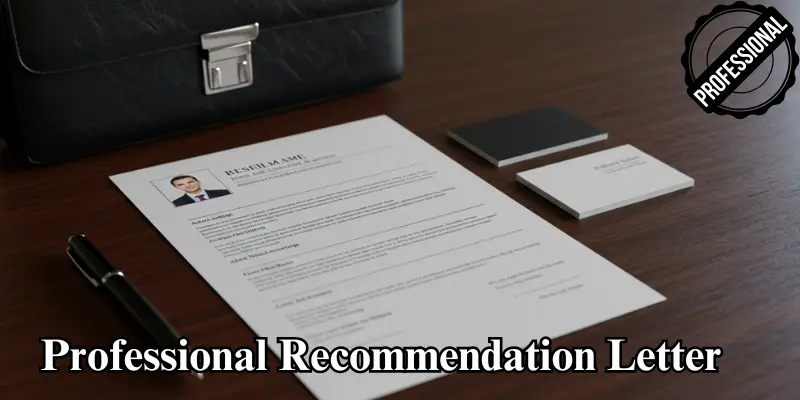
3. Character Recommendation Letter
Alright, this one’s a little more personal. The character recommendation letter is written by someone who knows you personally—a friend, mentor, or even a community leader. It speaks to your character, like your integrity, values, and how you treat people.
This letter is usually needed for things like volunteer work, community service, or even when you’re applying for a loan or other personal matters.
Who can write it?
- A family friend
- A mentor
- A community leader
When should you ask for it?
- For volunteer work
- For personal development opportunities
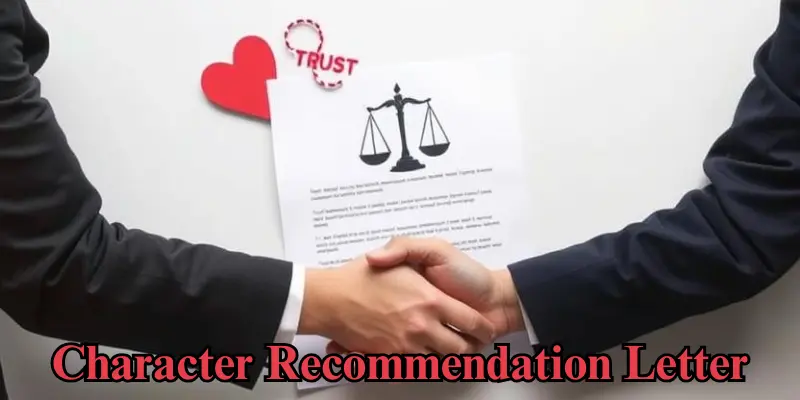
4. Graduate School Recommendation Letter
If you’re looking to get into graduate school, you’re going to need this one. A graduate school recommendation letter comes from someone who knows you in a more academic or research-focused setting, like a professor or research advisor. It’s all about why you’re not just ready for grad school but why you’re going to thrive there.
So, what does it highlight? Your research skills, academic passion, and potential for success in higher education.
Who can write it?
- A professor
- A research advisor
When should you ask for it?
- For graduate school applications
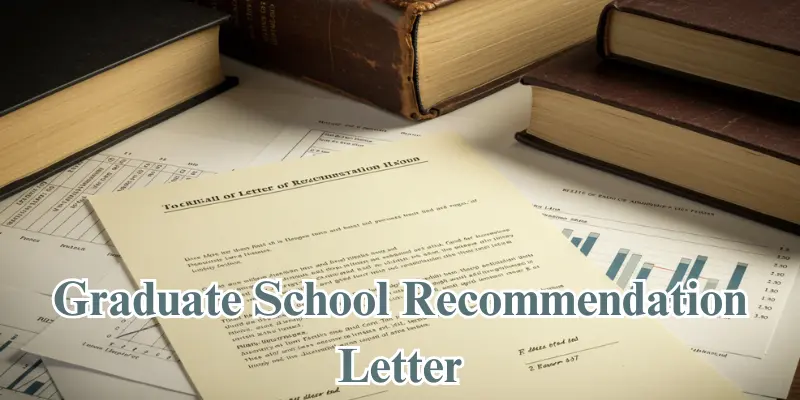
5. Immigration or Legal Reference Letter
Here’s one that’s a bit more specialized. The immigration or legal reference letter is used when you’re applying for a visa or any legal process related to immigration. This letter is written by someone who knows you well and can speak to your credibility and good character—basically vouching that you’re the kind of person that immigration authorities can trust.
This is pretty common if you’re looking to move abroad or settle in a new country.
Who can write it?
- A previous employer
- A community leader
- A family friend
When should you ask for it?
- For visa applications
- For residency applications

6. Volunteer Recommendation Letter
Volunteering is a big deal, right? And if you’re looking for a new volunteer position, then a volunteer recommendation letter will help you stand out. It shows your commitment and passion for helping others, which is super important for roles in the nonprofit sector or community-focused jobs.
It’s written by someone who has worked alongside you during your volunteer efforts.
Who can write it?
- A volunteer coordinator
- A supervisor from your volunteer work
When should you ask for it?
- When applying for volunteer roles
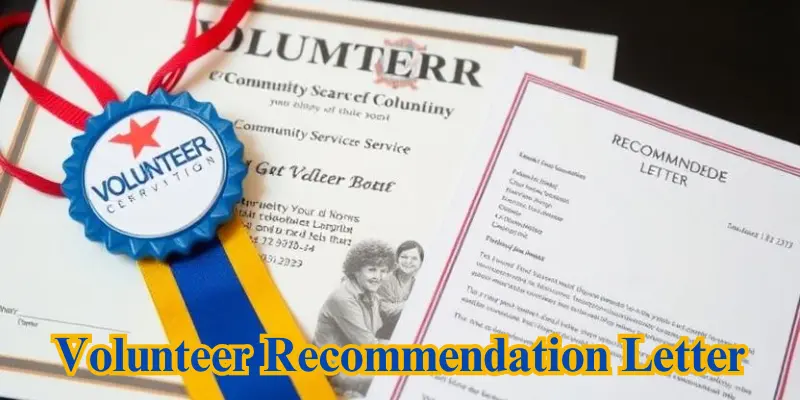
7. Scholarship Recommendation Letter
Got your eye on a scholarship? Well, the scholarship recommendation letter is one of the most important letters you’ll need to help you stand out from the crowd. It’s all about showcasing why you’re a great fit for the scholarship, touching on your academic achievements, personal values, and goals.
This letter is typically written by a teacher, mentor, or someone who has worked with you in a scholarship-related field.
Who can write it?
- A teacher
- A mentor
- A community leader
When should you ask for it?
- For scholarship applications
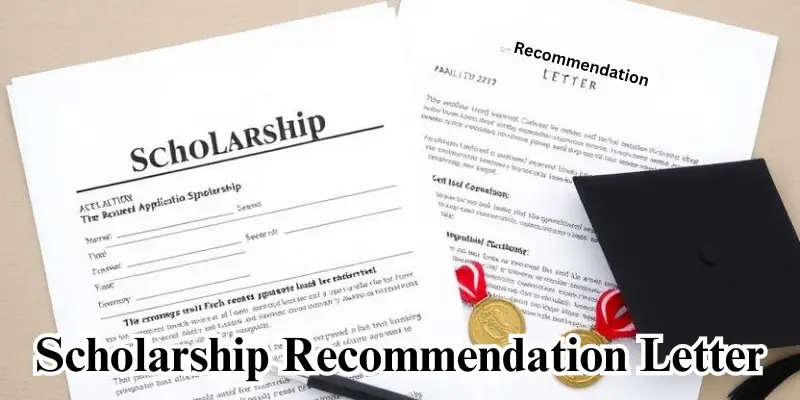
8. Job Recommendation Letter
We all know how important the job recommendation letter is, right? If you’re applying for a new job, this letter is the one that employers look at to see what others say about your skills, experience, and work ethic. A glowing recommendation can really make you stand out from the rest of the applicants.
Who can write it?
- Past employers
- Supervisors
When should you ask for it?
- When applying for a new job
- When seeking a promotion
9. Internship Recommendation Letter
Getting an internship? You’ll want an internship recommendation letter for sure. It’s written by someone who knows your academic potential and how ready you are to apply your skills in the real world. This helps employers see that you’ve got the drive and ambition to succeed as an intern.
Who can write it?
- A professor
- A mentor
- A previous internship supervisor
When should you ask for it?
- When applying for an internship
10. Personal Recommendation Letter
A personal recommendation letter isn’t about your academic or professional skills. It’s about you as a person—your character, your values, and your ability to interact with others. This letter is often needed for things like personal loans, renting an apartment, or even applying for certain types of volunteer roles.
Who can write it?
- A family member
- A friend
- A community leader
When should you ask for it?
- For personal loans
- For renting an apartment
11. Reference Letter for a Tenant
Here’s a good one if you’re a tenant moving to a new place. A tenant reference letter comes from your previous landlord or property manager, giving a little background on your responsibility and reliability as a renter. It speaks to your payment history, care for the property, and how easy you were to work with.
Who can write it?
- Your previous landlord
When should you ask for it?
- When applying for a new rental property
12. Business Recommendation Letter
Need a letter to boost your business? The business recommendation letter helps highlight your professionalism and the quality of your work. It’s typically written by a client or business partner to show others why your business is trustworthy.
Who can write it?
- Clients
- Business partners
When should you ask for it?
- When pitching your business
- When applying for new clients
13. Promotional Recommendation Letter
Looking for a promotion? A promotional recommendation letter speaks to your previous achievements at your current job and explains why you’re ready to take on a higher-level role. It’s like proof that you’ve been killing it in your current position and are more than capable of handling more responsibility.
Who can write it?
- Your supervisor
- Your manager
When should you ask for it?
- When applying for a promotion
14. Religious Recommendation Letter
A religious recommendation letter is written by someone in your religious community, like a pastor or imam, and it speaks to your spiritual character and commitment to your faith. This is typically needed for roles within a religious organization or community.
Who can write it?
- Religious leaders
- Clergy members
When should you ask for it?
- When applying for religious roles or opportunities
15. Professional License Recommendation Letter
Last but not least, the professional license recommendation letter. If you’re applying for a license to practice in fields like medicine, law, or engineering, this letter is essential. It highlights your experience and why you’re qualified to work in the field.
Who can write it?
- Mentors
- Supervisors
When should you ask for it?
- When applying for a professional license
FAQs About Types of Recommendation Letters
You’ve got questions about recommendation letters, right? Don’t worry, I’ve got you covered! Let’s clear up some of the most common questions about the types of recommendation letters you’ll come across. Here we go!
There are several types of recommendation letters, including academic, professional, character, and volunteer recommendation letters. Each type serves a unique purpose depending on your situation.
An academic recommendation letter is written by a teacher or professor to highlight your academic performance and potential. It’s typically required for college admissions or scholarship applications.
A professional recommendation letter is needed when applying for a job, internship, or promotion. It focuses on your work ethic, skills, and experience in a professional setting.
A character recommendation letter can support your job application if the employer values personal qualities like integrity, reliability, and trustworthiness, especially for positions involving children, seniors, or volunteer roles.
An academic recommendation letter focuses on your learning abilities and performance in school, while a professional recommendation letter emphasizes your work experience, skills, and how you perform in the workplace.
Yes, if you’re applying to graduate school, a graduate school recommendation letter is crucial. This letter usually comes from a professor or research advisor and speaks to your research potential and academic readiness.
If you’re applying for volunteer work or a community service role, a volunteer recommendation letter can highlight your commitment to service and your teamwork abilities. Ask your volunteer coordinator or supervisor to write it for you.
Typically, it’s better to ask someone who knows you in a professional or academic setting. However, a family friend or mentor can write a character recommendation letter, especially for roles that require personal integrity.
A recommendation letter should generally be one page long. It should include key details about your skills, qualities, and specific examples, but it shouldn’t be too lengthy or repetitive.
It’s okay to use the same professional or academic recommendation letter for multiple purposes, but it’s a good idea to tailor t slightly depending on whether you’re applying for a job, college, or scholarship to make it more relevant to the specific opportunity.
Wrapping Up
So there you go! You now know all about the 15 types of recommendation letters and why they’re important for your personal, academic, and professional life. To make sure everything sticks, here’s a quick recap for you:
- Know the type you need: Whether it’s for school, work, or personal matters, pick the letter that best fits your situation.
- Choose the right person to write it: A great letter comes from someone who truly knows you and can speak to your strengths.
- Be specific when requesting: Give the writer enough context so they can craft the perfect letter for you.
- Say, thank you: Always express your appreciation for their time and support—good manners never go out of style!
Bonus Tips:
- If you’re unsure which letter you need, start by asking someone you trust (a teacher, boss, or mentor).
- Always give the person writing your letter enough time—don’t rush them! A well-written letter takes time.
I hope this guide made it easier to understand the world of recommendation letters! If you found it helpful, don’t keep it to yourself—share it with friends or family who might need it too!
And hey, I’d love to hear from you!
- Have you ever had to ask for a recommendation letter? How did it go?
- Do you have any tips or experiences to share?
Leave your thoughts in the comments below, and let’s chat!
Also, if you’ve got any questions or need help with writing your letter, feel free to drop a message! I’m always happy to help.
Thanks for reading, and good luck with your letters! You’ve got this!

- Be Respectful
- Stay Relevant
- Stay Positive
- True Feedback
- Encourage Discussion
- Avoid Spamming
- No Fake News
- Don't Copy-Paste
- No Personal Attacks

- Be Respectful
- Stay Relevant
- Stay Positive
- True Feedback
- Encourage Discussion
- Avoid Spamming
- No Fake News
- Don't Copy-Paste
- No Personal Attacks








